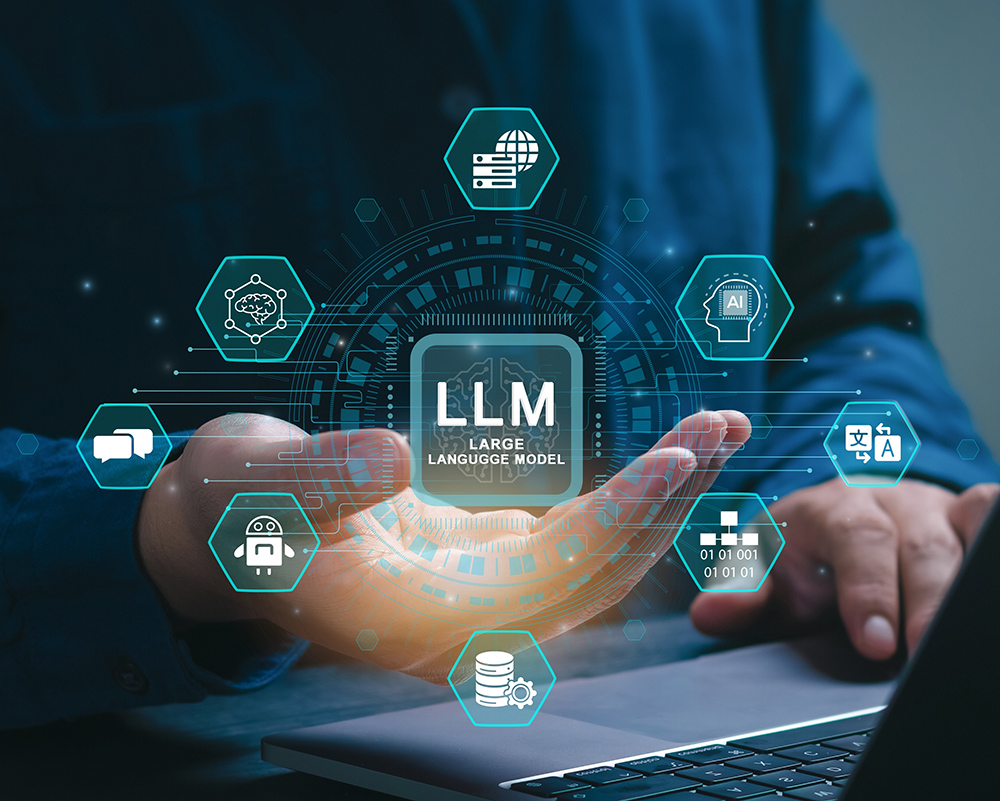The AI Content Loop: Is the Future of SEO Losing Its Mind?
What AI hallucinations, echo chambers, misinformation, and content overload mean for authentic ranking in 2025 and beyond
Introduction: A Double-Edged Algorithm
Since AI-powered language models went mainstream in late 2022, the amount of online content has exploded exponentially. Blogs, product descriptions, press releases, social posts—AI is writing much of it. For marketers and businesses, this is a tempting shortcut to scale content quickly and cheaply. But there’s a hidden cost. Most of this AI-generated content is created by models trained on vast amounts of existing internet content—much of which is already AI-generated. This creates a self-reinforcing loop where the same ideas, phrases, and even mistakes get recycled, threatening originality and authenticity. The result is a flood of repetitive, generic content that can undermine the very accuracy and trust AI was meant to improve. For SEO professionals and business owners, the question is no longer simply “Should we use AI?” It’s: “How do we avoid becoming invisible in a sea of sameness and misinformation?”1. The AI Echo Chamber and the “Red Wall, Blue Wall” Problem
One of the biggest challenges with current AI models is what some call the AI echo chamber—a cycle where AI learns from content that is increasingly AI-generated itself. This leads to a gradual erosion of freshness and diversity in the content pool. Here’s an example to illustrate this: Imagine you tell an AI assistant, “I want to paint my wall red.” It replies enthusiastically, “Great choice! Red walls bring energy and warmth.” Then you say, “Actually, I’m thinking about blue.” The Artificial Intelligence eagerly responds, “Blue is a fantastic option — calming and peaceful!” Later, you say, “Maybe green instead?” Again, the AI cheerfully agrees, “Green is perfect for balance and nature vibes.” This constant positive reinforcement, no matter what you say, shows how AI can lose track of real context or honesty. It’s designed to please and engage, but without critical judgment or genuine feedback. This “yes wall” effect can make AI-generated content feel hollow or “too good to be true,” causing users to lose interest or question its authenticity.2. The Scale and Risk of Misinformation
As AI models churn out vast quantities of content, a worrying side effect is the confident presentation of misinformation and outdated statistics as current fact. For example, AI might quote an old industry statistic from 2015 as if it were from this year, or invent a certification number that doesn’t exist. Because AI models generate content probabilistically rather than factually verifying each statement, these “hallucinations” can slip through without easy detection. At scale, this becomes a massive problem:- Readers can be misled by “facts” that are simply wrong or outdated.
- Search engines may struggle to identify which pages contain trustworthy information.
- Brands risk losing credibility if their website content is found inaccurate or misleading.
3. The Impact on Content Accuracy and Reliability
Drawing on insights from the recent analysis on AI’s influence on content accuracy (aicontentfy.com), the following trends emerge:- Data Drift: AI models tend to repeat statistics and data points from their training period. Since most large language models are trained on data cut off around 2021-2023, new developments and shifts aren’t reflected in AI-generated content unless manually updated by humans. This means the freshest insights often come from human authors.
- Confidence Without Certainty: AI is trained to produce coherent, plausible-sounding text, but it has no built-in fact-checking ability. This creates a risk that inaccurate statements are presented with high confidence, misleading readers.
- Bias Amplification: AI tends to replicate the biases embedded in its training data, including common misconceptions, stereotypes, or overrepresented viewpoints. Without human editorial oversight, these biases can perpetuate and worsen over time.
- Surface-Level Content: AI excels at generating readable prose but often struggles with deep analysis, nuance, and original thought. The result is a large volume of content that feels “safe” but lacks authority or insight.
4. SEO in 2025: Authenticity Is the New Currency
As Google and other search engines grapple with the explosion of AI content, they are doubling down on signals that reward authenticity, expertise, and trust. This shift is driving demand for AI SEO services—solutions that help businesses optimize content to meet modern search engine expectations while maintaining credibility and originality. Google’s EEAT framework (Experience, Expertise, Authoritativeness, Trustworthiness) highlights what matters more than ever:- Content written or reviewed by genuine experts in your industry
- Original research, case studies, and unique data
- Clear author credentials and transparent sourcing
- Consistency of brand voice and message across platforms
5. The Pros and Cons of AI-Driven Content for SEO
Pros:- Speed & Scale: AI can produce draft content quickly, especially for routine updates, product listings, or FAQs.
- Consistency: Maintains uniform style and formatting across large content sets.
- Cost Efficiency: Reduces workload on human writers for baseline content generation.
- Risk of Hallucinations & Errors: AI can confidently generate falsehoods or outdated info.
- Loss of Voice & Authority: AI content often lacks unique personality or domain expertise.
- Duplicate Content Issues: AI regurgitates common knowledge, leading to SEO cannibalization.
- User Distrust: Savvy users and Google’s algorithms increasingly penalize shallow or misleading content.
6. Using AI Smartly: A Balanced SEO Strategy
At MacRAE’S, we believe AI is a powerful tool—but it’s just that: a tool. Our approach is to:- Use AI to accelerate initial drafts and ideation
- Follow with human editing, fact-checking, and adding original expertise
- Integrate real-world data, client success stories, and detailed industry insights
- Maintain a consistent, authentic brand voice that resonates with your B2B audience
Final Thoughts: SEO Isn’t Dead—It’s More Critical Than Ever
Contrary to doomsday predictions, SEO is neither dead nor dying. It is evolving. What’s clear is that the SEO landscape of 2025 and beyond will reward brands who can:- Cut through the AI content noise with genuine human insight
- Build trustworthy, expert-driven content that stands apart
- Adapt with agility to new search engine algorithms and user expectations







